JTS Scholars
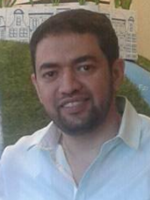
Muhamed Amin, PhD - University College Groningen
Muhamed uses artificial intelligence, machine learning, and molecular modeling to study biological systems. His research focuses on understanding metalloenzymes by analyzing features from machine learning models that reproduce their biochemical properties. In addition to standard machine learning evaluation methods (such as cross-validation, accuracy scores, and confusion matrices), he uses quantum mechanical calculations to assess the predictions made by these models. He also develops scientific software in Python to simulate protein-laser interactions.

Malcolm) Campbell-Verduyn, PhD - Faculty of Arts
My research generally explores the intersections of digital technologies and global economic governance. In particular I research how artificial intelligence and blockchain technologies are reshaping global regulatory frameworks and financial systems. As JTS Scholar I will examine how these changes, and others like the growing use of synthetic data, are impacting (1) digital financial inclusion (2) socio-ecological sustainability and (3) data autonomy, as part of the editorial team of the Yearbook of Data Autonomy (YODA).
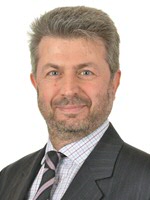
Dr Christos Emmanouilidis - Faculty of Economics and Business
Christos carries over 20 years of experience from positions in Industry, Academia, Research, & Innovation supporting organisations, and standardisation bodies, working at the intersection of engineering, computing and industrial management. He has had leading roles in projects related to Human-Centric AI & Cognitive Systems, Robotics & Automation, as well as Cyber-Physical Systems and Internet of Things Technologies to serve industrial application needs, most recently including the EU projects on Human-Centric AI STAR, HumAIne, AI4Work, SkillAIbility. He has Editorial appointments in several journals. He is vice-chair of IFAC's TC 5.1 Manufacturing Plant Control, chairing WG Advanced Maintenance Engineering Services and technology.
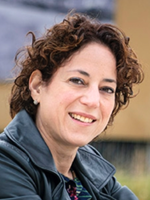
Dr Esther Metting - Faculty of Medical Sciences
Dr. Esther Metting’s research focuses on making digital healthcare more accessible and valuable on regional, national, and international levels. Combining clinical, behavioral, and implementation research, she collaborates across disciplines to drive innovation. By engaging directly with end users—including those with limited digital skills—through interviews, focus groups, and observational studies, she tackles digital inequalities in healthcare. Internationally, she explores cultural differences in technology acceptance, adapting digital care to diverse contexts. Her work bridges global insights with local impact, ensuring that digital healthcare solutions are both effective and inclusive, addressing the needs of diverse populations and reducing healthcare disparities.
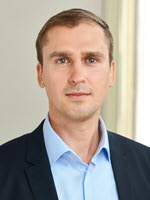
Dr Evgeni Moyakine - Faculty of Law
Evgeni Moyakine is an Associate Professor IT Law at the Department of Transboundary Legal Studies of the Faculty of Law. He specializes in cybersecurity, data protection, state responsibility, the law of armed conflict and telecommunications law and investigates the complex yet highly fascinating intersection between technology, policy and law. More specifically, his ongoing research delves into the challenges of cyber attribution and assigning responsibility to states embarking upon offensive cyber operations that violate international law. In addition, it explores the application of AI in enhancing the security of network and information systems in conformity with applicable legal and technical standards.
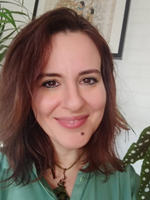
Dr Manuela Ritondale
- Faculty of Arts
Dr. Manuela Ritondale is a postdoctoral researcher in Digital Heritage at the Groningen Institute of Archaeology, with a background in maritime archaeology and ancient history. She holds a double doctorate in Cultural Heritage Management and Mediterranean Archaeology. Her research focuses on archaeological predictive modelling, digital strategies for cultural heritage, and innovative applications of GIS within the humanities. Dr. Ritondale has also contributed to immersive maritime heritage projects and has examined digital challenges in cultural institutions. Her current work also explores the ethical and long-term impacts of digital heritage.
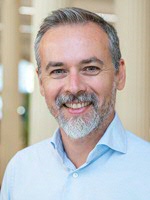
Dr Dario Rodighiero
- Campus Fryslân
Dario Rodighiero is an Assistant Professor of Science and Technology Studies at the University of Groningen, specializing in data and visual literacy. He coordinates the Data Wise minor, introducing students to applied data science for real-world challenges, and teaches in the Bachelor’s program in Data Science and Society. His research focuses on mapping digital archives to understand cultural and scientific dynamics, bridging critical data studies, digital humanities, and knowledge design. Affiliated with Harvard University, he contributes to metaLAB and the Berkman Klein Center for Internet & Society. His book, “Mapping Affinities: Democratizing Data Visualization,” explores innovative approaches to visualizing social dynamics.
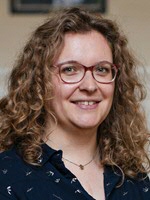
Dr Nynke Vellinga
- Faculty of Law
Dr. Nynke Vellinga is a senior researcher at the STeP research group at the Department of Transboundary Legal Studies of the Faculty of Law. Nynke works on new technological developments, such as Artificial Intelligence (AI), and the legal challenges these developments pose to the legal framework. Her research focuses on the legal aspects of technological developments in the mobility sector, i.e. automated driving, and the legal challenges concerning the use of AI in the medical sector. Nynke is a member of the Young Academy Groningen (YAG) and a research fellow at the Information Society Law Center (ISLC), University of Milan.

Dr Herman Veluwenkamp
- Faculty of Philosophy
Herman Veluwenkamp is an Assistant Professor in Normative Ethics and the Digital Society at the University of Groningen. He completed his PhD at the same institution and did a post-doc at the TU Delft. His research engages with questions at the intersection of technology, society, and morality, exploring conceptual engineering, value-sensitive design, meaningful human control, and responsibility gaps. Herman also has a background in philosophy and computer science, and actively contributes to policy-making by serving on the Ethics Committee for Data and Technology for the city of Groningen and collaborating with the Centre for Meaningful Human Control.
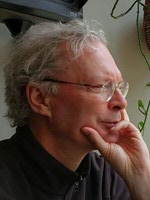
Prof. Dr Bart Verheij
- Faculty of Science and Engineering
Bart Verheij's research focuses on the design of responsible artificial intelligence using an argumentation perspective. In his approach, responsible artificial intelligence requires the development of hybrid argumentation systems in which humans and machines interact in a critical discussion based on reasonable arguments. To achieve this vision, he works on new AI methods that combine data, knowledge, reasoning and language. Much of his research takes inspiration from the domains of law and evidence. Bart Verheij is professor of artificial intelligence and argumentation at the Bernoulli Institute of Mathematics, Computer Science and Artificial Intelligence, Faculty of Science and Engineering.
| Last modified: | 10 January 2025 5.07 p.m. |

